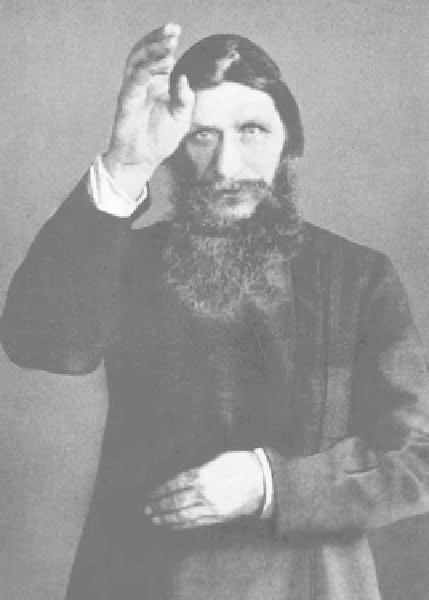Travel Reference
In-Depth Information
neously posited the existence of a German fac-
tion at the court, headed by the empress, who
was of German origin, and aided by Rasputin.
False as the rumors were, the damage to the
image of the royal family was real. Identifying
Rasputin as the source of the monarchy's and
Russia's crisis, two distant relatives of the czar
and the right-wing
DUMA
deputy Vladimir Pur-
ishkevich conspired to assassinate him in Decem-
ber 1916. After a bungled plot that only added to
his legend, as he survived poison in his food and
gunshots to his body, Rasputin finally died after
being dropped into a hole in the frozen Neva
River.
Rastrelli, Bartolomeo
(1700?-1771)
(Varfolomeo Varfolomeovich)
architect
Born Bartolomeo Francesco Rastrelli in Paris,
the son of the Italian architect and sculptor Bar-
tolomeo Carlo Rastrelli (1675-1744), Rastrelli
became the leading exponent of high baroque
architecture in 18th-century Russia. He studied
architecture in western Europe but was also
influenced by 17th-century Muscovite architec-
ture. His style was basically baroque but with
rococo elements; his plans are completely cubic
and rectilinear, with a complete absence of
curves, and he is notable for his lavish use of
decoration (grouped columns, moldings), color,
and gilding. His magnificent interior enfilades
were much copied. As court architect to Empress
ELIZABETH
, his principal works were the palaces
of Peterhof (Petrodvorets) and Tsarskoe Selo
(now Pushkin), the Summer Palace, and the
Smolny Convent in St. Petersburg, in which he
achieved a remarkable and exuberant fusion of
rococo and native elements. Outside of St.
Petersburg he built the St. Andrew's Cathedral in
Kiev (1747-48). While all these are jewels of
Russian architecture, the Winter Palace in St.
Petersburg (1754-62) marked the culmination
of Rastrelli's long and distinguished career and
remains his masterpiece. Located on the banks
of the Neva River, Rastrelli's Winter Palace set
Grigorii Efimovich Rasputin
(Hulton/Archive)
phy of repentance through sin, Rasputin became
a controversial celebrity in the salons of high
society. Eventually, his greed and desire for
financial and political influence, coupled with the
dissolute life he led, made him many enemies. In
1912 church authorities denounced him as an
impostor and ordered him to return to Siberia. In
1914, however, he returned to St. Petersburg,
and the following year, with Nicholas II residing
in Mogilev with the command of the Russian
armies during World War I, Rasputin's influence
over Alexandra was now almost unchallenged.
Isolated in the capital, Alexandra turned to
Rasputin for political advice. Ministers rose and
fell in rapid succession, depending on their ability
to please Rasputin and Alexandra. Coupled with
the Russian setbacks on the field of battle, the
result was a whispering campaign that erro-


Search WWH ::

Custom Search